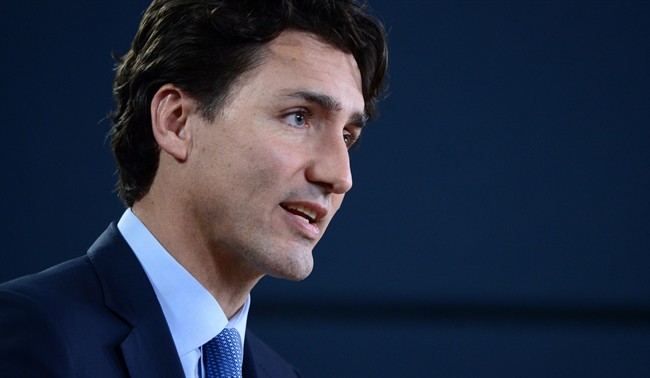While the Trudeau government is currently making waves with its pipeline approvals, something else the government is about to do is getting less public attention yet has the potential to have the most impact on provinces in the short term.

While it will take years for any pipeline to be built and fully operational, the Trudeau government’s position when it comes to its share of funding our enormously expensive health care system will start having an impact starting next spring.
The financial squeeze on B.C. is outlined in a “fact box” the provincial finance ministry inserted into the recent release of the government’s second quarterly financial report (page 11 if you’re interested).
While the headlines about that report were mostly about how the budget surplus is growing and the economy is firing on all cylinders, that fact box got little mention in the media, yet is one of the more startling revelations in that report.
Simply put, if the federal government doesn’t change its funding formula, its funding contribution to B.C. will decline by a whopping $2 billion less over the next five years.
The cuts start with a modest $142 million reduction next spring, which climbs to $285 the year after and accumulates to more than $2 billion by 2021-22.
The implications of this kind of cut are staggering. Finance officials say the province has committed to covering the shortfall out of its own revenue fund, but that means $2 billion that is currently spent on things like education, social services and the justice system may have to be redirected into health.
“The consequences for B.C. and other provinces are significant, you’re quite right, measured in the billions of dollars,” B.C. Finance Minister Mike de Jong told me on Shaw TV’s Voice of B.C. program last week. “Now, what does it mean practically? We’re going to fund (the shortfall).”

Get breaking National news
But the money has to come from somewhere else, he acknowledged.
“So the money that we would otherwise be allocating to education or environmental protection or agriculture or public safety, that money will have to be diverted to make up the difference resulting in the gap resulting from the unilateral change by the federal government,” he said.
Of course, given the size of the government surpluses that are forecast over the next few years, not as much money has to be diverted as perhaps feared. However, any significant drop in economic growth in B.C. would wipe those surpluses out in a heartbeat, which could be devestating.
The reason for the huge drop in federal funding is that, so far at least, the Trudeau government is following through on a policy change first announced by the previous Stephen Harper government. That government unilaterally decided to tie any annual funding increase to the economic growth rate, starting in 2017-18.
That translates into a cut of roughly half the annual federal contribution to the provinces for health care, from about six per cent to three per cent. Because the health care system consumes so much money, what looks like a small cut (three points) is really quite huge.
The B.C. government’s health care budget is increased by about a half billion dollars a year (this, despite constant talk about “cuts” in health care spending). Up until now, the feds provided about 53 per cent of that annual increase.
But the federal share drops to 41 per cent next year, and down to just 37 per cent in 2018-19.
To put all this spending into context, the finance ministry produced some interesting stats of what $100 million can buy you in the health care system.
For example, that kind of funding would provide 5,170 hip replacements annually, or 3,803 cardiac valve replacements, or 1,023 lung transplants.
The provinces’ collective demand of a new federal health care accord will undoubtedly come up at this week’s First Ministers Conference. Minister de Jong told me that he and his fellow finance ministers are “hopeful and somewhat optimistic” a new deal can be struck.
If not, the current funding policy is going to start negatively affecting provinces’ bottom lines and service levels, to the point where some of those anti-pipeline protests turn their attention to something else: health care.
Keith Baldrey is the chief political reporter for Global BC. He can be reached at keith.baldrey@globalnews.ca.







Comments